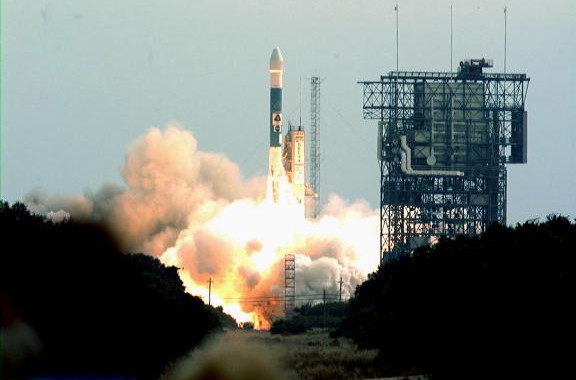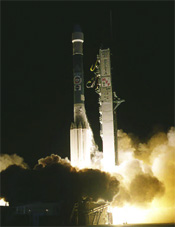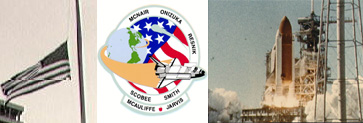
By David Mitchell
The 1995-96 timeframe was a busy period for NASA’s Delta II missions. Several spacecraft were slated for launch. During one particularly crazy stretch, four separate missions were launched within four months, and we had to jump between launch bases on both coasts (Cape Canaveral and Vandenberg Air Force Bases).
I was the Launch Services Manager. My job consisted of the traditional responsibilities that go with a fixed price contract: managing schedule and budget, and overseeing the delivery of launch vehicles. The final step in each mission was, of course, the launch. The Project Manager traditionally led the team through the final two weeks at the launch base.
My Project Manager took it upon himself to push me out into territory that I had never experienced before. For example, he had me plan the launch campaigns (manpower, resources, durations), lead some of the launch vehicle reviews, present launch vehicle readiness statuses to Center Management at Goddard and JPL, conduct pre- and post-launch press conferences, and be a part of the launch readiness “go/no-go” polls.
However, he did not just throw me out to sink or swim. He hammered away at me to make sure I was thoroughly prepared. An example of this was when he assembled a panel of three people to hear a dry run of my first pre-launch press conference. His panel of mock reporters fired away at me with a series of questions to make sure I was quick on my feet in responding to some very good and sometimes “off-the-wall” questions.
As with every mission, we always had to wrestle with late breaking launch vehicle issues. In the case of the Mars Global Surveyor and Mars Pathfinder, two high-profile missions, that included a lot of scrutiny from senior management. In the past I might be associated with the senior managers through a photo opportunity (i.e., award ceremony) or an “All Hands” meeting. Now my project manager had me briefing some of these individuals on a weekly basis.
This was both an exciting and nerve-wracking time for me. My project manager’s confidence in me was a great motivator and I learned a lot about addressing and solving issues from the technical, programmatic, and political perspectives. Still, it all seemed to be going rather smoothly, until the unexpected occurred.
We were finishing our launch campaigns for ’95/’96 with great success, leading into the last mission, Mars Pathfinder, in December 1996. Just one day before launch, I received a call from my project manager who said he’d been incapacitated and would not be able to make the launch. It turned out that he had suffered a heart attack. He said he had all the confidence in me and wished me the “best of luck in tomorrow’s launch.”

David Mitchell was launch manager on Delta II missions. Pictured here, the Mars Pathfinder begins its journey with liftoff atop a Delta II expendable launch vehicle.
Although our deputy project manager and other senior managers had now converged on the launch site in preparation for the following day’s launch, the decision was made to put me in the role of NASA Launch Vehicle Manager (LVM) for the next day’s launch attempt. Fortunately, and by design, I had participated in many launch simulations and previous launches sitting next to my project manager observing his methods and actions as the NASA LVM. Now I was the person giving the launch vehicle readiness go/no-go to the NASA Launch Manager.
Had my project manager not prepared me as he did, it would have been quite daunting for me to be thrust into the limelight just a day before one of NASA’s highest-profile missions. In the end, the preparation was good, and everything went off smoothly.
You can never know when the unexpected will occur. And anybody who is intimately familiar with “Murphy’s Law” knows that the unexpected is going to occur at the worst possible time. My project manager wanted me to be as ready as possible in case Murphy reared its head. The bottom line is there is no better way to be prepared than by experiential learning.
My project manager taught me a valuable lesson. You prepare your people by giving them many different tasks, including tasks that are traditionally reserved for you or other senior people. I was motivated to accept the challenge fate tossed my way, but not just because I had trained for it. My project manager’s confidence in me brought out my confidence in myself. It motivates the heck out of people when you show them your confidence by giving them increasingly more responsibilities.
Lessons
- Learning by doing expedites doing something well.
- Your trust in people whom you feel are potential leaders brings out their confidence. Tell them that they’re doing a good job and that you have confidence in them and they will generally become self motivated and exhibit a greater degree of confidence in themselves.
- Convey that you expect much from people, and the chances are you will get much from them.
Question
Looking back at your career, do you agree that taking on a variety of responsibilities has enhanced your performance?
Search by lesson to find more on:
- Mentoring
- Leadership








